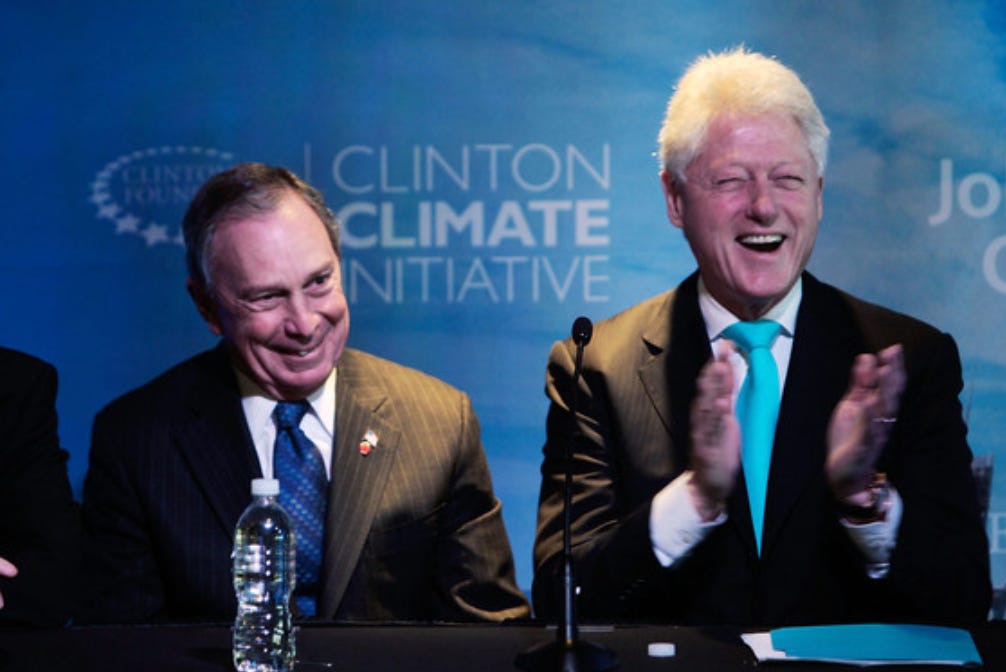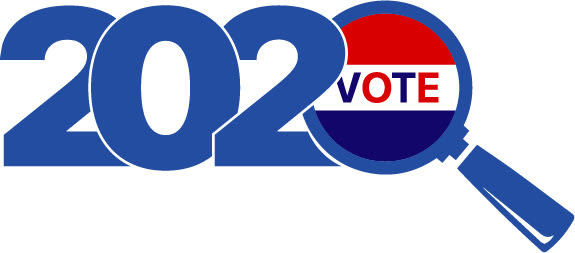Bloomberg Enters the Race. Here's what you need to Know.
BLOOMBERG IS IN.

Michael Bloomberg, Mayor of New York from 2001-2013, is expected to file paperwork designating himself as a Democratic primary candidate in at least one state with an early filing deadline - likely Alabama. The financial services billionaire has been weighing a Presidential run since 2008.
Bloomberg has prepared to enter presidential races before, in 2016 and then earlier this year, only to pull back in the end. Yet in those flirtations with the presidency, Mr. Bloomberg has never taken the step of filing to put his name on a state ballot.
Per the New York Times:
Should Mr. Bloomberg proceed with a campaign, it could cause a seismic disruption in the Democratic race. With his immense personal wealth, centrist views and close ties to the political establishment, he would present an instantaneous threat to former Vice President Joseph R. Biden Jr., who has been struggling to raise money and is already defending his ideologically moderate base on multiple fronts.
Mr. Bloomberg, 77, initially bowed out of the 2020 race because of Mr. Biden’s apparent strength, but he has since grown skeptical that Mr. Biden is on track to win the Democratic nomination and he does not see the two leading liberals in the race, Senators Elizabeth Warren of Massachusetts and Bernie Sanders of Vermont, as strong candidates for the general election.
WHO IS MICHAEL BLOOMBERG?

Bloomberg, who grew up in the suburbs of Boston, is the son of a Russian immigrant father who married a New Jersey native. An alumnus of Johns Hopkins University, he also has an MBA from Harvard Business School. As of November 2019, his net worth was estimated at $53 billion, making him the 9th richest person in the United States and the 14th richest person in the world. He has joined The Giving Pledge, whereby billionaires pledge to give away at least half of their wealth.To date, Bloomberg has given away $8.2 billion.
In 1973, Bloomberg became a general partner at Salomon Brothers, where he earned $10 million worth of equity as a partner at the firm. Using this money, Bloomberg went on to set up a company named Innovative Market Systems (later renamed Bloomberg L.P.). His business plan was based on the realization that Wall Street (was willing to pay for high-quality business information, delivered as quickly as possible.
Bloomberg served as the 108th Mayor of New York City, holding office for three consecutive terms, beginning his first in 2001. A Democrat before seeking elective office, Bloomberg switched his party registration in 2001 to run for mayor as a Republican. He won a second term in 2005, and left the Republican Party two years later. Bloomberg campaigned to change the city's term limits law, and was elected to his third term in 2009 as an Independent on the Republican ballot line.
Bloomberg was frequently mentioned as a possible centrist candidate for the U.S. Presidential elections in 2008, and 2012, as well as for Governor of New York in 2010. He declined to seek either office, opting to continue serving as the mayor of New York City. Bloomberg announced that he would not run as a third party candidate in the 2016 U.S. presidential election despite widespread speculation that he would, and later endorsed Democratic nominee Hillary Clinton for president.
THE ISSUES: WHERE BLOOMBERG STANDS

Bloomberg has been a registered Democrat for most of his life. He is regarded as socially liberal or progressive on multiple issues, supporting abortion rights, supports same-sex marriage, and stating that he smoked marijuana in the past, as well as same-sex marriage. His hallmark issues are his strict gun control measures, environmentalism and a pathway to citizenship for illegal immigrants.
On economics and foreign issues, Bloomberg has tended towards a conservative or moderate stance. He opposed a timeline for withdrawal from the Iraq War, and criticized those who favored one. He supports government involvement in issues such as public welfare, while being strongly in favor of free trade, pro-business, and describing himself as a fiscal conservative because he balanced a city budget. He is concerned about climate change and has touted his mayoral efforts to reduce greenhouse gasses. Bloomberg has been criticized for not allowing many emergency officials who responded to the September 11, 2001, attacks to attend the tenth anniversary observation of that day. He was also at odds with many around the U.S. for not inviting any clergy to the ceremony marking the anniversary of the 9/11 attacks. Bloomberg has expressed a distaste of taxes. His self-described fiscal conservatism also led him to eliminate the existing $6-billion deficit when he assumed office. Bloomberg is a staunch advocate of free trade and is strongly opposed to protectionism.
WHY IS THIS DIFFERENT THAN TOM STEYER?

With the Iowa caucus still months away, Steyer has already spent nearly $50 million attempting to make voters care about him. He is currently polling at less than 1 percent. To put it short, he has not resonated with voters. Perhaps the fact that he’s never held an elected office - compared to Bloomberg’s three terms as NYC Mayor - is a major sticking point for potential voters. A viable Bloomberg campaign will depend upon Iowa and New Hampshire and South Carolina splitting, giving the party no clear front-runner ahead of Super Tuesday. At this point, the idea seems to be, Bloomberg will be able to present himself as a compromise candidate, someone who will be tough on guns and serious about climate change but realistic about Wall Street and taxation. He won't be trying to win hearts or even minds. He doesn't need voters to like him; he just needs them to hate Trump.
DAYS UNTIL 2020 PRESIDENTIAL ELECTION: 360
REGISTER TO VOTE HERE


DPT 2020 ARCHIVES
November 3 (One Year from Today: Road to White House)
October 25 (Who is still in the race and why?)
October 18 (AOC endorses Bernie, Debate IV Recap)
October 11 (Warren *almost* catches Biden; Hillary seeking Rematch?)
October 3 (Bernie’s Heart)
September 27 (Impeachment: Candidates In Their Own Words)
September 19(Polls, Polls, Polls)
September 13 (Debate 3 Power Rankings)
September 10 (Campaign Swag/Giveaway)
September 5 (Iowa Five Months Out)
August 29 (Back to School/Millennials + Gen Z)
August 22 (Inslee Drops Out; Steyer Spends Big)
August 15 (Gun Control Issue)
August 8 (The Impeachment Issue)
August 1 (Debates, Round 2)
July 25 (The Social Media Issue)
July 18 (The Fundraising Issue)
July 11 (Steyer In, Swalwell Out)
July 4 (The Ancestry Issue)
June 27 (Debates: Night 1 Power Rankings, Night 2 Preview)
June 20 (The Debate Issue)
We genuinely appreciate you reading Dem Primary Tracker 2020. You can also ‘like’ our page on Facebook and follow us on Twitter & Instagram.


